Hello guys, I have been sharing a lot of roadmaps to become a Web developer, DevOps engineer, and recently React.js developer. One of the requests I received from many of my readers was for creating a Java Developer Roadmap. Since Java is my expertise, It wasn't a problem to create a Java Developer Roadmap, but it took slightly longer for me to create one because of the limited time I get. Anyway, I am finally ready to share my Java developer RoadMap with you. This Roadmap contains my years of experience and the unobstructed path of how to become a Java expert. It answers many burning questions like which technologies a Java developer should learn? What tools make you a better Java developer? And, which framework a Java developer must absolutely learn.
One of the things I tried with this roadmap is that to keep the exposure as short as possible, I have avoided mentioning many alternatives, particularly when it comes to libraries and tools, and stick with industry-standard tools and libraries.
I have kept it simple so that most of the people can follow it and only included the essential stuff, but if there is enough desire, I am thinking to post The Java Developer RoadMap 2.0 to add some advanced things like JVM internals, Profiling, Java 9 Modules, Cloud Native Java, different cloud platforms like AWS, GCP, or Azure, and more advanced tools like Chef for DevOps and much more.
If you are interested, you can find a more exhaustive list of separate blog pots, which I have listed in the further learning section. Anyway, let's go through this Java Developer RoadMap to understand how to become a Java developer in 2025.
Btw, you by no means need to understand everything on this roadmap to become a rockstar developer. In fact, you don’t even need to take them that seriously if you don’t want to. Instead, use these maps as a starting point to help guide your learning as you go.
One of the things I tried with this roadmap is that to keep the exposure as short as possible, I have avoided mentioning many alternatives, particularly when it comes to libraries and tools, and stick with industry-standard tools and libraries.
I have kept it simple so that most of the people can follow it and only included the essential stuff, but if there is enough desire, I am thinking to post The Java Developer RoadMap 2.0 to add some advanced things like JVM internals, Profiling, Java 9 Modules, Cloud Native Java, different cloud platforms like AWS, GCP, or Azure, and more advanced tools like Chef for DevOps and much more.
If you are interested, you can find a more exhaustive list of separate blog pots, which I have listed in the further learning section. Anyway, let's go through this Java Developer RoadMap to understand how to become a Java developer in 2025.
Btw, you by no means need to understand everything on this roadmap to become a rockstar developer. In fact, you don’t even need to take them that seriously if you don’t want to. Instead, use these maps as a starting point to help guide your learning as you go.
Here is the Java Developer RoadMap I am talking about :
6 Mandatory skills for any Java developers
Before going to Java-specific stuff, let's go through some mandatory skills which are required for both core Java developers as well as full-stack Java developers. These are the essential skills for any programmer or software developer and will serve you for a long time.1. Git & GitHub
One of the most popular version control systems. It's just not possible to live without Git anymore. You can check out The Git Complete Guide on Udemy to start with.2. Linux
Not just a web developer but for any programmer, the Linux command line is very, very important, and I strongly recommend you to spend some time learning them. You can use these free Linux courses to start learning Linux.3. Data Structures and Algorithms
These are the building blocks of any program, and a good knowledge of Algorithms and Data Structure is vital for your next job or doing well in your current situation.You should at least be familiar with essential data structures like an array, linked list, hash table, binary tree, queue, stack, and graph.
If you know advanced data structures like Trie, B-Tree, AVL tree, then it's well and good. But, if you don't know, then I suggest you join a comprehensive course like Data Structures and Algorithms: Deep Dive Using Java, which will teach you everything about all those fundamentals.
4. HTTP / HTTPS
The HTTP protocol is the backbone of the web, and a good knowledge of both HTTP and HTTPS is mandatory for a web developer5. Computer Science Fundamentals
If you are creating global applications that show information in many different languages across the world, then you should have a good knowledge of character encodings. It basically tells your browser how to show your data.6. Design Patterns
There is no doubt that every programmer should know Git and GitHub as they are the standard in terms of version control and code repository. If you want to learn and master Git and GitHub, you can check this list of books and courses to learn Design patterns.The Complete Java Developer RoadMap
Now, let's explore this Java developer roadmap together and find out what tools, frameworks, libraries, APIs you can learn1. Tools
The tools section is divided into different sections. First, your IDE, which is your primary tool and can do almost everything you asked for like compile, run, debug, profile, test, compare files and code, refactoring, and much more.The second part is the build tool, which you need to build and deploy your projects like Maven and Gradle. Any one of these would be enough. I have just listed ANT, but that's for legacy projects. For all new Java projects, prefer Maven or Gradle.
And, the third and most crucial part includes containers like Docker and Kubernetes, CI/CD tools like Jenkins and TeamCity, and Infrastructure automation tools like Ansible.
If you are interested in learning about these tools, here are some useful courses to learn to build tools and IDEs
- 5 courses to learn Apache Maven for Java developers
- 5 Courses to learn IntelliJIDEA
- 5 Free Courses to learn Eclipse IDE
- Top 5 Courses to learn Docker and Kubernetes
- Top 5 Courses to learn Jenkins for CI/CD
- Top 5 Courses to learn Ansible for Server Automation
If you can just learn one took, I strongly suggest you learn Docker, it will make your life easy for both the development and deployment of Java applications.
2. JDK APIs
The next important thing to learn is JDK APIs, which are very, very important for any Java developer. This is quite a big section, and that's why it's divided into core areas like Java Collections framework, Java Concurrency, Java IO, and Java 8 APIs, let's explore each of them
2.1 Java Collections Framework
This is one of the most essential Java API every Java developer should learn. This API provides implementations of standard data structure in Java-like linked list, set, stack, queue, hash table, priority queue, and others.At least you should know about all everyday objects like ArrayList, HashMap, HashSet, LinkedHashSet, TreeSet, etc. Each of them has its different property like ArrayList is a dynamic array that can grow, HashMap is a standard implementation of the hash table and can be used to store key-value pairs.
Similarly, HashSet is a set implementation that doesn't allow duplicate elements. I strongly suggest you check Java Fundamentals: Collections course by Richard Warburton on Pluralsight to learn Java Collection Framework in depth.
2.2 Java Concurrency
After Java Collections, the next, most crucial API in Java is about multithreading and concurrency, and I firmly believe that if you want to be a competent Java developer, you must have a solid understanding and command of Java Concurrency API.You should not only have an in-depth understanding of fundamental concepts like Thread, Runnable, Object locking, and Synchronization, but you should also be familiar with concepts like deadlock, livelock, race conditions, and how to deal with them.
You should also learn about advanced Java concepts like synchronizers added on Java 5 and subsequent versions, I mean CyclicBarrier, CountDownLatch, Phaser, and CompleteableFuture, etc., along with Futures and how to perform the async operation in Java.
I know, it's a lot of stuff, and that's why I suggest you join an in-depth course like Java Concurrency in Practice bundle from Heinz Kabutz, a Java Champion, and authority when it comes to concurrency and design patterns. This course is a bit expensive, but you will learn a lot more concepts in-depth, which makes it completely worth your time and money.
On the other hand, if the price is an issue, you can also check this Udemy course to Efficient Java Multithreading with Executors, which won't cost you more than $10 if you get it on Udemy flash sales which happens every month. This is also an excellent course to learn Java concurrency and multithreading in Java.
2.3 Java IO
I have interviewed more than 100+ Java programmers, and I have noticed one pattern; they all have very little knowledge of Java IO and NIO APIs as compared to Java Collections and Java Multithreading API. I can understand that many people spend a lot of time learning those two APIs, but you cannot leave behind these critical APIs.If you have to code a real-world, core Java application, you will need to use classes like File, InputStream, OutputStream, Reader, Writer from the java.io package, which is the core of the Java IO API. Similarly, you also need to know about ByteBuffer, FileChannel, Selector, and other critical classes from the java.nio API, if you want to write a socket-based application.
Unfortunately, there are not many dedicated resources on teaching Java IO and Java NIO API, but The Complete Java Masterclass is a great resource to master this API. You will find a lot of essential concepts from this API in this course.
2.4 Java 8 Features
Without knowing these APIs, it would be very tough to write a Java application in 2025. Most of the libraries also now stop supporting versions lower than Java 8, which means you have to learn Java 8 features now than later. It's already 5 years since Java 8 was released, so you literally have no excuse left.
When it comes to learning Java 8 features, there are a lot of excellent resources available in the market. Still, if you already know Java, I suggest you choose the resource which only focuses on Java 8 features like the What's New in Java 8 course on Pluralsight. This way, you can learn Java 8 in no time.
While Java 8 features are essential for Core Java developers, if you can, please learn all other new features introduced from Java 9 to Java 15 like Modules, var for local variables, static factory methods for collections, Text Block, String in Switch, Records, Sealed Classes, and many more.
If you need a resource, you can check out this list of courses to learn all new Java features in 20254.
Spring Framework encourages writing clean code, which is easier to test and maintain by providing you features like Dependency Injection and Inversion of Control. It also has a rich API for most of the day-to-day tasks, and that's why every Java developer should learn the Spring framework.
And, if you want to learn the Spring framework, there is no better course than Spring Framework 6: Beginner to Guru. It covers Spring 5, the latest version of spring 5, and teaches Spring in a more hands-on way than any other course.
Now, why should you learn Hibernate? Well, because most of the Java applications you will work with will interact with Database, and it's excruciating to deal with Database in Java using JDBC and without a proper framework like Hibernate.
It provides some of the essential features like Caching and Transaction out-of-the-box, which means you have more time to focus on your application logic, then implementing caching in your application. This seriously improves the performance of Java application, and so far, my most significant reason to use Hibernate.
Now, when it comes to learning Hibernate there are many great resources available in the market, but the Spring & Hibernate for Beginners course is my preferred one because you can kill two birds from one stone, you can learn both Spring and Hibernate in one class rather than joining separate courses for them.
3. Frameworks
The best thing about Java is that it has a vibrant ecosystem, which means there are a lot of frameworks and libraries for almost anything. Usually, I don't suggest a Java developer learn a framework until he needs to use it in his project. Still, there are some frameworks and libraries, which I believe every Java developer should know like Spring, Spring Boot, Hibernate, Log4j, JUnit, etc.3. 1 Spring Framework
If you want to become a Java developer in 2025, I strongly recommend you to learn Spring Framework first. This is one of the most popular Java frameworks, and literally, almost every single Java application I have worked on in the last 5 years, uses this framework.Spring Framework encourages writing clean code, which is easier to test and maintain by providing you features like Dependency Injection and Inversion of Control. It also has a rich API for most of the day-to-day tasks, and that's why every Java developer should learn the Spring framework.
And, if you want to learn the Spring framework, there is no better course than Spring Framework 6: Beginner to Guru. It covers Spring 5, the latest version of spring 5, and teaches Spring in a more hands-on way than any other course.
3.2 Hibernate
The second framework which I recommend every Java developer to learn is the Hibernate, which is based upon JPA (Java Persistence API). To be accurate, Hibernate came before JPA, but because JPA is a standard API to implement the persistence layer in Java, Hibernate implements it.Now, why should you learn Hibernate? Well, because most of the Java applications you will work with will interact with Database, and it's excruciating to deal with Database in Java using JDBC and without a proper framework like Hibernate.
It provides some of the essential features like Caching and Transaction out-of-the-box, which means you have more time to focus on your application logic, then implementing caching in your application. This seriously improves the performance of Java application, and so far, my most significant reason to use Hibernate.
Now, when it comes to learning Hibernate there are many great resources available in the market, but the Spring & Hibernate for Beginners course is my preferred one because you can kill two birds from one stone, you can learn both Spring and Hibernate in one class rather than joining separate courses for them.
3.3 Spring Boot
This is another framework I recommend every Java developer to learn in 2025 and going forward. Spring Boot took Spring's philosophy of simplification and made it easy to work with Spring itself. Just like Spring makes it easier to create a Java application, Spring Boot makes it easier to create a spring-based Java application.Features like auto-configuration take away most of the pain associated with configuring the Spring application. Similarly, starter POM features grouped commonly used dependency into simple reusable POMs.
Now, if you want to learn Spring Boot, I strongly suggest you go through Learn Spring Boot in 100 Steps course; it's one of the best and most up-to-date and also provide step-by-step guides for everyday things a Spring Boot developer needs to know.
3.4 MicroProfile, Micronaut, and Quarkus.io
While learning Spring Boot and Spring Cloud is sufficient for developing Microservices in Java, there is a couple of more advanced frameworks you can explore, like Eclipse Microprofile, Micronaut, and Quarkus.3.4.1 Eclipse Microprofile
It's an initiative that aims to optimize Enterprise Java for Microservice Architecture. It's driven by Eclipse, one of the leading organizations of Java and the company behind popular Eclipse IDE.The goal of Eclipse of MicroProfile is to define standard APIs for building microservices and deliver portable applications across multiple MicroProfile runtimes. The current version of Eclipse Microprofile is 3.2, and it's a useful Java framework to learn in 2025.
3.4.3 Micronaut
This is another Java framework you can learn in 2025. Micronaut is a modern, JVM-based, full-stack framework for building modular, easily testable microservice and serverless applications.It's a polyglot framework and allows you to create an application using Java, Kotlin, or Groovy.
Some of the key talking points of Micronaut are reduced startup time, blazing-fast throughput, and minimal memory footprint.
3.4.3 Quarkus
Quarkus is a Kubernetes Native Java stack tailored for OpenJDK HotSpot and GraalVM, crafted from the best-of-breed Java libraries and standards. Quarkus tailors your application for GraalVM and HotSpot to get Amazingly fast boot time and incredibly low RSS memory (not just heap size!).It also provides instant scalability and high-density memory utilization in container orchestration platforms like Kubernetes using a technique called compile-time boot.
You can also use both the familiar imperative code and the non-blocking reactive style when developing applications for Quarkus.
In short, one of the best platforms for Java developers to create an application and something worth learning in 2025.
If you know these two and know how to use them to effectively create a unit test, you will be a much better Java developer than without them.
There are more advanced libraries that also exist like Cucumber for Business-driven testing, Robot Framework for integration testing, but there is no substitute for JUnit, you will always need that.
When it comes to a mocking library, you have a couple of choices like PowerMock, Mockito, and EasyMock. Still, I strongly suggest you learn Mockito because it's a vast library, and also many Java developers and companies are doing that. It is slowly becoming the standard library for creating mock objects in Java.
If you want to learn JUnit and Mockito, I have already shared a lot of resources like books and courses, you can check those to learn more.
In short, one of the best platforms for Java developers to create an application and something worth learning in 2025.
4. Testing
Testing is an essential skill for any Java developer, particularly unit testing, integration testing, and automation testing. At the bare minimum, every Java developer should be familiar with JUnit and Mockito, two of the most popular Unit testing and Mock library.If you know these two and know how to use them to effectively create a unit test, you will be a much better Java developer than without them.
There are more advanced libraries that also exist like Cucumber for Business-driven testing, Robot Framework for integration testing, but there is no substitute for JUnit, you will always need that.
When it comes to a mocking library, you have a couple of choices like PowerMock, Mockito, and EasyMock. Still, I strongly suggest you learn Mockito because it's a vast library, and also many Java developers and companies are doing that. It is slowly becoming the standard library for creating mock objects in Java.
If you want to learn JUnit and Mockito, I have already shared a lot of resources like books and courses, you can check those to learn more.
5. Utility Libraries
The real power of Java lies in its vibrant ecosystem of open source libraries. You will find libraries to do almost anything in Java from logging to machine learning, from sending an HTTP request to parsing JSON, and much more.Apart from that, Java is also lucky to have utility libraries like Apache Commons and Google Guava, these two libraries effectively complement JDK libraries. I have also shared a list of 20 Java APIs and libraries for Java developers.
I suggest you go through that list, chances are that you already have half of them but if you don't learn them they are very, very useful and help you to write better Java programs and deliver faster.
That's all about the 2025 Java Developer Roadmap. This is an excellent resource to learn Java in 2025 and become a better Java developer. I have kept it simple so that most of the people can follow it and only included the important stuff, but if there is enough desire, I am thinking to post The Java Developer RoadMap 2.0 to add some advanced things like JVM internals, Profiling, Modules, Cloud Native Java, Containers and much more.
Other Programming Articles you may like
- 10 Things Java Programmer Should Learn in 2025
- The 2025 iOS Developer RoadMap
- 10 Programming languages You can Learn in 2025
- The 2025 PHP Developer RoadMap
- 10 Tools Every Java Developer Should Know
- The 2025 Laravel Developer RoadMap
- 10 IT Certifications Java Developers can Aim in 2025
- The 2025 Software Architect RoadMap
- 10 Reasons to Learn Java Programming languages
- The 2025 Python Developer RoadMap
- 10 Frameworks Java and Web Developer should learn in 2025
- 10 Tips to become a better Java Developer in 2025
- Top 5 Java Frameworks to Learn in 2025
- 10 Things Aspiring Web Developer Should Learn
- 10 Reasons to Learn Python in 2025
- 10 Testing Libraries Every Java Developer Should Know
- How to Crack Spring Professional Certification in 2025
- Top 10 Cloud Certifications You can aim in 2025
Please consider entering subscribing to this blog if you’d like to be notified of every new post, and don’t forget to follow javarevisited on Twitter!
All the best for your Java Development Journey !!

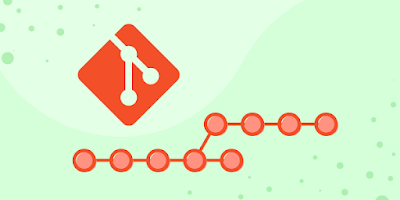


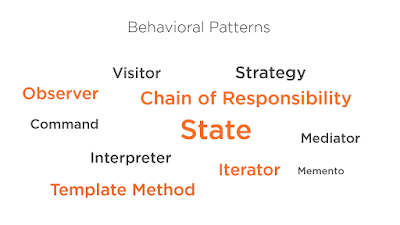
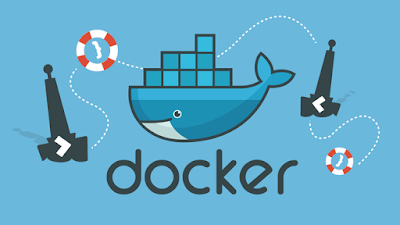


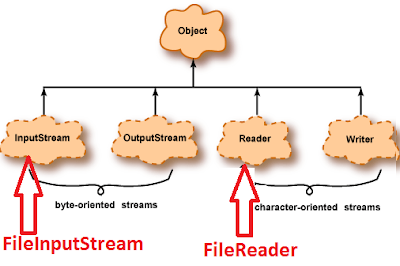


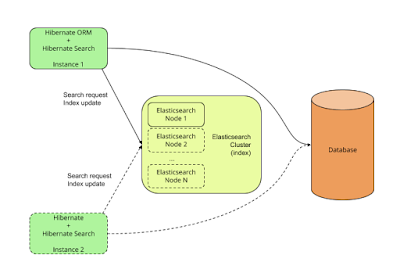
















46 comments :
what means different (yellow) color of Maven and (orange) NIO ?
Good article...
Highlighted in different color to mark their importance :-)
It will be very helpful if you can share some links for resources to learn the sections mentioned above for beginners. Thank You.
Hello Mridul, I have shared a lot of resources like books and courses, even in this article. Anything in particular you would like to know? May be I can point to the right article.
Hi.. Notify me
No IntelliJ, but eclipse?
You can use Eclipse, it's a great IDE, in fact, its my favorite too but if you have to do some other development like Rust, C++ or JavaScript, IntelliJ is better, you don't need any plugins.
No JDBC and DB pool mention?
Like seriously, no JDBC?
Kind of surprised that logging (whether log4j, slf4j, or other) is considered "good to know" rather than essential. Do you really think that knowledge of Kubernetes, important as that is, is more vital than the basic use of error and debug logging?
Data Structures, not Data Structure
How much day to become Java developer?
someone has told me that a developer who will just know only those technologies would be less important in market in the nearest future unless he dig into AI ,machine learning :(
Hello @Dina, that's not true. While there is a bright future for AI and Machine learning, its not true that you will only have that job in future. If you ask me, I think Java is OK for next 10 years. Of course you need to keep yourself up-to-date with Cloud, DevOps, and other Software development tools and practices, but that's part of every developers job.
I'm currently a CS undergraduate looking to learn more about java. So far, my courses have taught me all the basic OOP concepts and some data structures and the fact that I can't understand most of what you've explained here is worrying lol.
What would you recommend a newbie like me to learn for now?
Hello Zoraiz, you should focus on core Java concepts like Java basics, data types, then Java Collections, Multi-threading and Concurrency, and then slowly about design principles, patterns and finally something about JVM. To start with, you should check out my list of Top 10 Java Programming courses for beginners. It will take anywhere between 6 to 8 months to master these concepts.
I'm new to programming . Is it worth learning java or i should go for python ?
Hello Fardin, you are asking to a Java developer :-) Yes, learn Java, it will help you to get job faster. Python is also a good choice but I will suggest to learn as second programming language. Make Java your programming skill if you want jobs in Big banks.
Is it possible to add JSP to the diagram if it belongs?
When I click on the PNG, the background is black. Is it possible to change it so that it's white?
Thx for pointing out, I will take a look.
If you don't wanna see the PNG with black blackground, you must open in new tab (chrome) and change de background using chrome tools :D
Is very easy <3
Peace and love por all programmers and i wanna share with you the next link about roadmap backend, frontend and devops.
:)
https://roadmap.sh/roadmaps/ <-- try to see
Thanks for the article😇
Concurrency 'paterns'
Thx samalufo, yes, Concurrent patterns are good to learn
Few things to add, maybe :
- add a CI/CD part (Jenkins/Gitlab CI, Ansible/Puppet ...)
- add a Java / Jakarta EE part (with samples)
- add a Java 11 part (with samples from Java 9/10/11)
- move jOOQ / JDBC closer to JPA / Spring Data
- add GraphQL close to REST part
What about messaging? Kafka, MQs, events...
Very helpful. May I recommend adding security, e.g Spring security.
Thank you all for suggestions, I have noted additions like Kafka, Spring Security and Messaging for next update.
Please increase the font size in the image because it is too small that I had zoomed it but I did not see anything. Thank you!
hello Anonymous, thx for your comment, I will look into this. the zoom version should display big image.
Wow… how should someone learn all this stuff next to daily work? Impossible 😅
Any comment on design patterns in java
There are some more useful suggestion at this twitter thread
https://twitter.com/javarevisited/status/1467157640329326599
Design patterns are important and probably I will add them when I do next update. I have added a couple of more new libraries like Lombok and Apache Kafaka, Active MQ and Rabbit MQ on messaging side. I have left out DevOps part but I will add another CI/CD, which is kind of essential for Java developers. Once again thank you all for your suggestion.
You made my career:)
Hi Javin Paul,
I have visited this page looking for a good resource to give some directions to absolute beginners who apply for Junior Java Developer role in a company where I conduct interviews as a technical.
I like many parts of the roadmap, but I would re-evaluate some:
- advanced data structures are good to know, not really essentials,
- IDEs - tough NO from me - IDEA is an essential now, Eclipse is a possibility, don't bother people about Netbeans. IDEA is pretty much default among teams I work with. I also see a trend that skilled candidates I interview also use IDEA. I am using IDEA for around 7 years and I have actually looked back out of curiosity, spent some weekends to try out new versions of Eclipse and Netbeans. They were missing a lot of features that I use in IDEA.
- I'd rather not bother people with desktop/Java FX at all - it's a niche and they may switch to it during their career, if any opportunity will arise for that,
- Please remove PowerMock - it's very rarely useful if you program your software using SOLID/clean code principles. It's also easy to learn and apply for people who know JUnit/Mockito. In my project it has caused a lot of trouble due to tests written by other people against poor quality code that we were later refactoring.
- Roadmap is missing NoSQL databases, CAP theorem etc. MongoDB is very popular, Cassandra is probably still good to know about.
Hello Anonymous, those are good suggestion and I agree with most of your points. Since this is a RoadMap, I have included Java FX for GUI development while it not as popular as server side development for Java. Regarding PowerMock, its been included as optional. For NoSQL database, noted, I will add them on the next update. Thanks for your comment, appreciate it.
Could you please share the link for the 2.0 version of the roadmap
@matsmad If you are still at blogger, please send me an email. Would love to ask you some questions ;)
Helpful information. Lucky me I discovered your site by chance, and
I'm stunned why this twist of fate didn't came about in advance!
I bookmarked it.
good roadmap
Please post the Java Road map 2.0.
It's one of the best roadmap for java technologies. If you could share the 2.0 version then it would be awesome for us experienced professionals to assess ourselves. Thank you in advance
Post a Comment